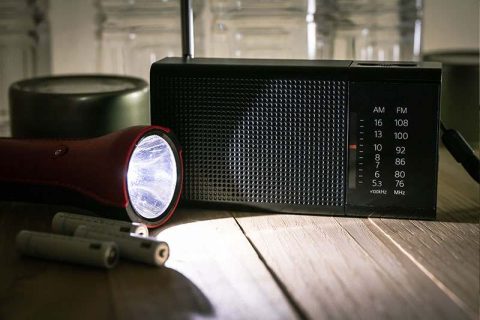June 18, 2024 by

Summer storms mean more power outages. For most, they’re just a minor inconvenience. But for older adults, it can cause major concerns. The best way to handle unexpected power outages is through advance planning to ensure older loved ones are prepared and equipped to ride out the storm, giving you the peace of mind you need.
Help older family members stay protected and prepared for a power outage by first assessing their specific circumstances. Consider mobility limitations, medical needs, and daily routines. Develop an emergency plan that addresses these factors, ensuring it’s straightforward and easy to follow. Include clear instructions on what to do and where to go if there’s a need to evacuate quickly.
- Secure Important Documents: Find a safe place to store vital documents like medical records, identity cards, insurance policies, and contact information. Consider having digital copies available as well, protected by strong passwords and stored on a secure cloud service or a USB drive in a waterproof and fireproof container. This will ensure that crucial information is retrievable in a variety of emergency scenarios.
- Keep an Emergency Kit Handy: Prepare an emergency kit that includes essentials such as water, non-perishable food, medications, and first aid supplies. Also, consider the need for extra batteries, a flashlight, a battery-operated radio, and a manual can opener. Include a supply of blankets and warm clothing in case of unexpected cold weather. Remember to check and update the contents of the kit regularly, replacing expired items and adapting to changing medical needs.
- Install Safety Enhancements: Home modifications can make the home safer in the case of an emergency. Install smoke alarms and carbon monoxide detectors, and ensure they function correctly with battery backups. Consider the use of non-slip mats and adequate lighting, especially in areas like bathrooms and hallways, which can prevent accidents in the dark during a power outage.
- Establish a Network of Support: Establish who around you can help in an emergency. Ensure they are familiar with the person’s specific needs and know how to assist with the emergency plan. Communication is key, so keep contact information updated and easily accessible. Also, provide a list of emergency contacts within this network to local emergency services, which can save precious time in critical situations.
- Explore Emergency Power Options: Look into installing backup power solutions such as generators or battery backups, particularly for homes where medical equipment is in use that requires electricity. Teach family members how to safely operate these devices and check them regularly to ensure they are functional when needed.
- Routinely Review and Practice the Plan: Review the emergency plan regularly, making adjustments as necessary to adapt to any changes in the individual’s health or living situation. Practice emergency drills to ensure everyone feels confident about what to do in different scenarios, such as power failures, medical emergencies, and natural disasters, to cover a broad range of possibilities.
Thinking ahead of emergencies and staying prepared for a power outage can significantly reduce the stress and confusion faced during an actual incident. By taking these steps, you can help ensure that older loved ones remain safe and secure, no matter what challenges may arise.
With At Home Independent Living, our caregivers are here to help provide necessary care and support during power failures or any other emergency situations. Ensure smooth, seamless care, whatever the weather! Partner with At Home Independent Living for all of your care needs in Syracuse, Camillus, Clay, Fayetteville, Salina, and the surrounding areas by calling (315) 579-HOME (4663) or contacting us online today!
